Investigative Project on Terrorism Exclusive: Joint Mossad-Brazilian Police Op Foils Hezbollah Attacks on Jewish Community in Brazil
Parts 1 & 2
Part 1 — November 9, 2023
By Maria Zuppello, Special to IPT News
Reprinted from ITP News
São Paulo, Brazil—New details emerged about Operation Trapiche (warehouse in English), which resulted in the arrest of two men in Brazil with suspected links to the Lebanese terrorist group Hezbollah. They were reportedly plotting to launch a series of major terror attacks against multiple Jewish and Israeli targets throughout Brazil.
It was the Mossad, the Israeli intelligence agency, that actually had conducted surveillance of some of the key masterminds behind the Hezbollah plot that led to the interdiction of the terrorist operatives by the Brazilian police. Though not known for issuing public statements, the Mossad issued a rare public statement on Thursday (November 8) morning thanking “the Brazilian security services for the arrest of a terrorist cell that was operated by Hezbollah in order to carry out an attack on Israeli and Jewish targets in Brazil.” The Mossad duly noted that the series of attacks—which security officials told IPT News could have resulted in the deaths of hundreds of Jews had they been successfully carried out—was “planned by the Hezbollah terrorist organization, directed and financed by the Iranian regime.”
Authorities revealed that one of the men was already in custody facing money laundering and smuggling charges in the country. But the new arrests were made in Sao Paulo state, with one suspect being apprehended at a bakery outside the city while the other at Guarulhos International Airport upon his arrival from Lebanon. He was found to be carrying $5,000.
Investigations revealed that the two men had recently traveled to Beirut to meet with Hezbollah representatives and had negotiated prices for collaboration in terrorist attacks, created a list of addresses to be targeted, and were in the process of recruiting Brazilian operatives.
The Brazilian federal police said in a statement that “the operation aimed to prevent acts of terrorism and gather evidence of possible recruitment of Brazilians for extremist activities within the country.”
The group was allegedly planning attacks on several Jewish community buildings, including synagogues and the Israeli Embassy in Brasilia. The Federal Police searched 11 locations in Minas Gerais, the Federal District, and São Paulo states. Interpol has also issued arrest warrants for two Brazilians believed to be in Lebanon, where Hezbollah operates.
According to Leonardo Coutinho, a Brazilian investigative writer and analyst with the private Washington-based firm Inbrain Consultants, “Hezbollah is using the same strategy that led to the attacks in Buenos Aires, Argentina, against the Israeli embassy in 1992 and the Argentine Israelite Mutual Association (AMIA) in 1994. At that time, Hezbollah exploited the country as a base for its logistical and financial operations.”
“Today, Hezbollah’s possible targets could be Jewish communities in neighboring countries such as Uruguay, Paraguay and Argentina. Although Argentina designated Hezbollah as a terrorist organization in 2019, it is holding a heated presidential election on November 19,” Coutinho said.
U.S. agents from the Federal Bureau of Investigation (FBI) also took part in the investigation. On October 11, the Commander of U.S. Southern Command, Laura Richardson, warned about the potential for Hezbollah and Iran to carry out terrorist attacks in Latin America.
There has been no official statement from the Brazilian government regarding the recent police operation. Justice Minister Flavio Dino referred to the investigation as “a hypothesis,” without directly naming Hezbollah. “Look, this is a hypothesis. The Federal Police are investigating and showing that, in this case, we only have one side, it’s the side of the law, of the international commitments that Brazil has made,” the minister said. This approach downplays the importance of the operation and is coupled with the Lula government’s benevolent attitude toward Hamas, which may pose a severe threat to national security in the Western Hemisphere.
The news of the operation came at a very inconvenient time for President Luiz Inacio Lula da Silva. Although Brazil has always been neutral in international conflicts, since the Ukrainian-Russian war, Lula has adopted a strategy of aligning the aggressor with the victims. After the October 7 offensive against Israel, the Brazilian president said that “Hamas attacks do not justify the deaths of millions of innocents. Lula’s political party, Brazil’s Worker’s Party, accused Israel of carrying out a “genocide” against the Palestinians.
Lula called Iranian President Ebrahim Raisi—with whom Lula allied himself upon taking office—in mid-October “to discuss the release of hostages in Gaza.” Still, the Israeli hostages were not mentioned in the official Brazilian statement. The communiqué lists about twenty Palestinians as hostages, some of them Brazilian citizens, whom Lula was unable to free from Gaza and bring back to Brazil.
Brazil has chosen not to designate Hamas and Hezbollah as terrorist organizations. This decision, coupled with the presence of over 30,000 Lebanese nationals in the Triple Frontier region on the border of Paraguay and Argentina, has created an environment that has facilitated Hezbollah’s growth in the country.
“Operation Trapiche confirms what was already known. Since its inception, Hezbollah has taken advantage of the Lebanese diaspora in Brazil to radicalize, find funding, including through drug trafficking, and to hide,” said Coutinho.
In Brazil, Hezbollah’s illicit activities came to light in 2018 with the arrest of Lebanese businessman Assad Ahmad Barakat, identified as the group’s financial operator. He was arrested for ideological falsehood in Foz do Iguaçu and later extradited to Paraguay. Before being arrested, he was the target of U.S. sanctions in 2004. The document released by the Treasury Department at the time accused Barakat of maintaining “close ties with the leadership of Hezbollah.”
In June, an Argentinian judge sent arrest warrants to Interpol, for four Lebanese who were allegedly involved in the AMIA attack. Among them, Farouk Abdul Hay Omairi is reported to be living freely in Foz do Iguacu, Brazil. In 2006 the Brazilian Federal Police arrested him for leading a drug trafficking network that operated between Latin America, Europe, and the Middle East. The U.S. Treasury Department sanctioned him in 2006 for his ties to Hezbollah. Meanwhile, the companies owned by another Lebanese individual on the Argentinian list, Salman Raouf Salman, are still operating in Brazil.
Furthermore, Garip Uç, who was known as “the PCC chemist” by his accomplices, was recently arrested at a PCC drug laboratory in the coastal region of São Paulo. His brother, Eray, is still at large and has been linked to a potent drug trafficking network of Lebanese origin based in Paraguay and led by Hezbollah’s financier Ali Issa Chamas. Chamas is serving a sentence for international drug trafficking in Paraguay.
This network poses a threat, and its wrath could sow terror among Israeli and Jewish communities in Latin America.
Part 2 — Is the Brazilian President Interfering in the Hezbollah Terrorist Investigation?
November 16, 2023
By Maria Zuppello, Special to ITP News
Reprinted from ITP News
Brazilian President Lula’s harsh attacks on Israel risk undermining Operation Trapiche, which resulted on November 8th in the arrests of two men in Brazil with suspected links to the Lebanese terrorist group Hezbollah. They were reportedly plotting to launch a series of major terror attacks against multiple Jewish and Israeli targets throughout Brazil.
When greeting a group of Palestinians on Monday the 13th, who had just arrived in Brazil from Gaza, Lula said, “If Hamas committed an act of terrorism and did what it did, the state of Israel is also committing various acts of terrorism in not considering that children are not at war, that women are not at war, and that they are not killing soldiers. They are killing children.”
“If they show no suffering in exploding a bomb to kill people in hospitals, to kill newborn babies, I honestly don’t know what kind of human being we are talking about,” Lula said, referring to Israel.
Operation Trapiche already provoked a diplomatic crisis between the Brazilian Justice Ministry and the Israeli ambassador to Brasilia, Daniel Zonshine, who made public statements about the presence of Hezbollah representatives in the Latin American country. The operation was launched by Brazilian Federal Police in collaboration with Israeli Mossad.
Referring to Hezbollah, Zonshine said, “If they chose Brazil, it is because there are people there to help them,” Zonshine said.
Justice Minister Flávio Dino reacted by stating that, “no foreign force is in charge of the Federal Police.” “Any country that is a source of information must respect Brazilian sovereignty. No one who cooperates with us may claim to replace Brazilian institutions,” said Dino.
Hezbollah has had a known presence in Brazil for years, particularly in the Tri-Border Area of Argentina, Brazil, and Paraguay, where the group has been historically involved in money laundering through its financiers and supporters.
IPT has obtained exclusive information that sheds light on the intricate network of contacts and companies associated with Mohamad Khir Abdulmajid, a Syrian national, one of the operations’ most wanted individuals. Along with an unidentified Lebanese national, he is accused of being a top recruiter for Hezbollah in this plot and is the subject of an Interpol arrest warrant. He is believed to be in Lebanon.
According to the investigations, Mohamad Khir Abdulmajid, 36, arrived in Brazil from Paraguay in 2008 and obtained citizenship. Since 2014, he has been on the radar of the Brazilian police after he was caught selling alcohol to a minor in the state of Minas Gerais. Brazilian police have identified Abdulmajid as a member of Hezbollah. Photos from his Facebook profile show him posing with Hezbollah flags and in military uniform on a tank in Syria, where he reportedly fought against the Islamic State alongside Hezbollah in 2016.
Abdulmajid operates two tobacco stores in downtown Belo Horizonte, registered under the name of his wife. In 2021, police investigated him for smuggling electronic cigarettes to finance terrorist activities.
According to the Brazilian company registry, Abdulmajid had owned an electronics store in an imported goods gallery in Brasilia since 2012, but later closed it down.
The “Feira dos Importados” gallery, also known as the “Paraguay Fair,” is located about 10 kilometers away from the Presidential Planalto Palace. This marketplace has been the subject of several investigations for money laundering activities. In 2014, the Car Wash anti-corruption operation uncovered a case involving Lebanese national Sleiman Nassim El Kobrossy. El Kobrossy was part of a smuggling and laundering network operated by seven Lebanese brothers related to Abdulmaji. They owned nine stores within the gallery. According to Brazilian police, the network used front companiesand false documents to import goods from Paraguay without paying taxes.
The U.S. Treasury Department in 2006 sanctioned the Galeria Pagé, a shopping center in Asunción Paraguay, for being “locally considered the central headquarters for Hezbollah members.” Its stores were operated by Hezbollah members, who fundraised for the organization and sent remittances directly to Lebanon. Renamed as Shopping Uniamerica, the mall continues to operate today.
Brazilian authorities also released the names and custody hearing video of the two men arrested at the beginning of the operation, on November 8th, Lucas Passos Lima, 35, and Jean Carlos de Souza, 38. A third Brazilian man, a musician named Michael Messias, was apprehended on November 12th in Rio de Janeiro. He claims to have traveled to Lebanon multiple times for work while facing trials in Brazil.
Passos Lima was arrested at Guarulhos airport upon his return from Lebanon, where he said had traveled on a business expansion proposal. During the custody hearing, he claimed to be a grain representative for Italy and was negotiating real estate there. He was arrested in Brazil seven years ago for illegally carrying a firearm.
De Souza, a resident of Joinville in southern Brazil, claimed in court that he frequently travels “in search of new business opportunities.” He expressed his frustration with being repeatedly stopped by the police at customs. However, the investigation revealed that the financial status of the two men neither justified their trips to Lebanon, nor explained the discovery of $5,000 in the pocket of one of them. Both individuals denied any involvement in the alleged plot.
“It’s absurd to tell me, ‘Jean, you are a member of Hamas, of Hezbollah’; I’m not a terrorist,” de Souza said.
During the custody hearing, their lawyer, Jose Roberto Timoteo da Silva, said their case “is absurd” and “without any factual basis.” “It’s another thing that shames Brazilian justice,” da Silva added.
Another Brazilian, whose identity was undisclosed, confessed to police that he had traveled to Beirut in February. Hezbollah members offered him $700,000 to set up the structure and recruit Brazilians to carry out an attack in Brazil. The man had been arrested three times and faced two trials for receiving stolen property.
Operation Trapiche revealed that the Brazilians involved had no cultural or religious ties to Hezbollah but were recruited to act as common criminals. Due to increased surveillance by intelligence agencies worldwide, Hezbollah has adopted the “proxy strategy,” subcontracting mercenaries in countries outside of Lebanon.
Hezbollah’s modus operandi shift had already emerged in Colombia with increasing requests of Hezbollah members for Colombian citizenship to conceal their network. In 2021, they attempted to assassinate U.S. and Israeli nationals, reportedly to avenge the January 2020 killing of Qasem Soleimani, commander of the Quds Force of Iran’s Islamic Revolutionary Guard Corps.
Should Operation Trapiche be scaled back or nullified because of Lula’s hostility toward Israel, Brazil risks compromising the security of the entire Western Hemisphere, which cannot afford another tragedy like that of the massive AMIA bombing in 1994.
Maria Zuppello is an Italian analyst based in Brazil and an expert on the crime-terror nexus. In her book, Tropical Jihad. she explores the connections between Hezbollah, Latin American cartels, and the Italian ‘Ndrangheta mafia. ( The ‘Ndrangheta is the Calabrian mafia, considered one of the most powerful mafia families in the world today.) Maria tweets at @mzuppy
Related Topics:

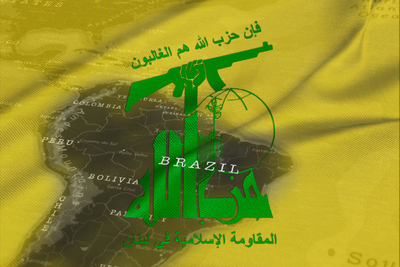

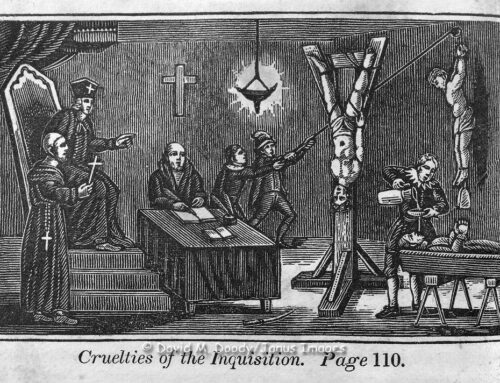
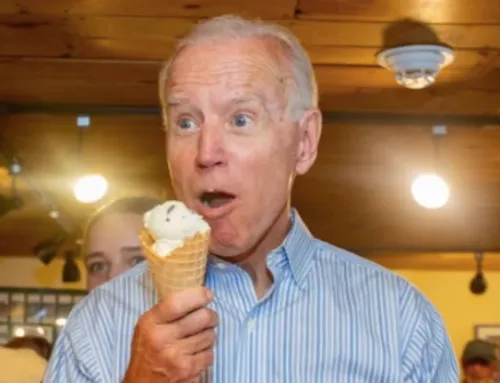
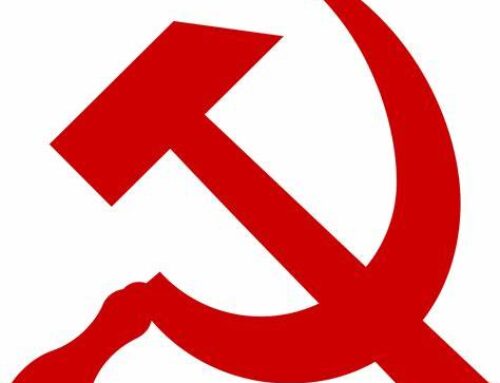
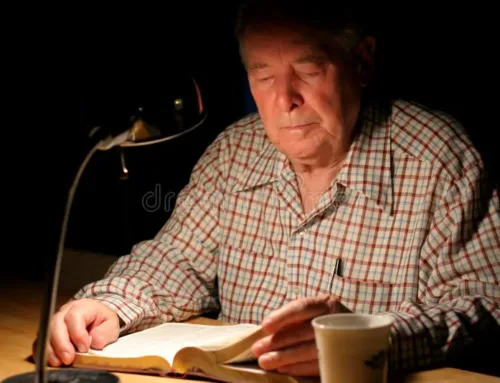
Leave a Reply, please --- thank you.